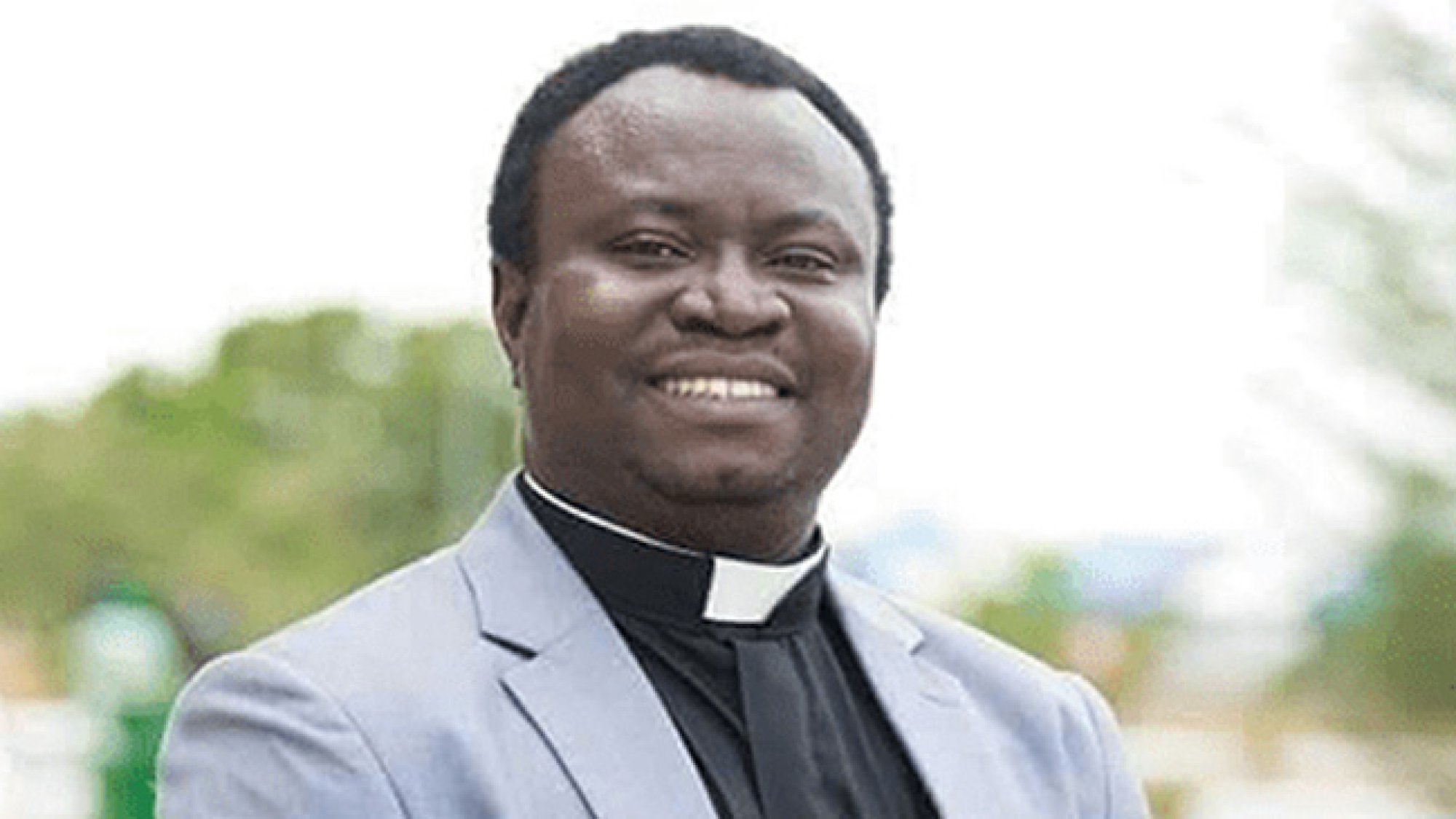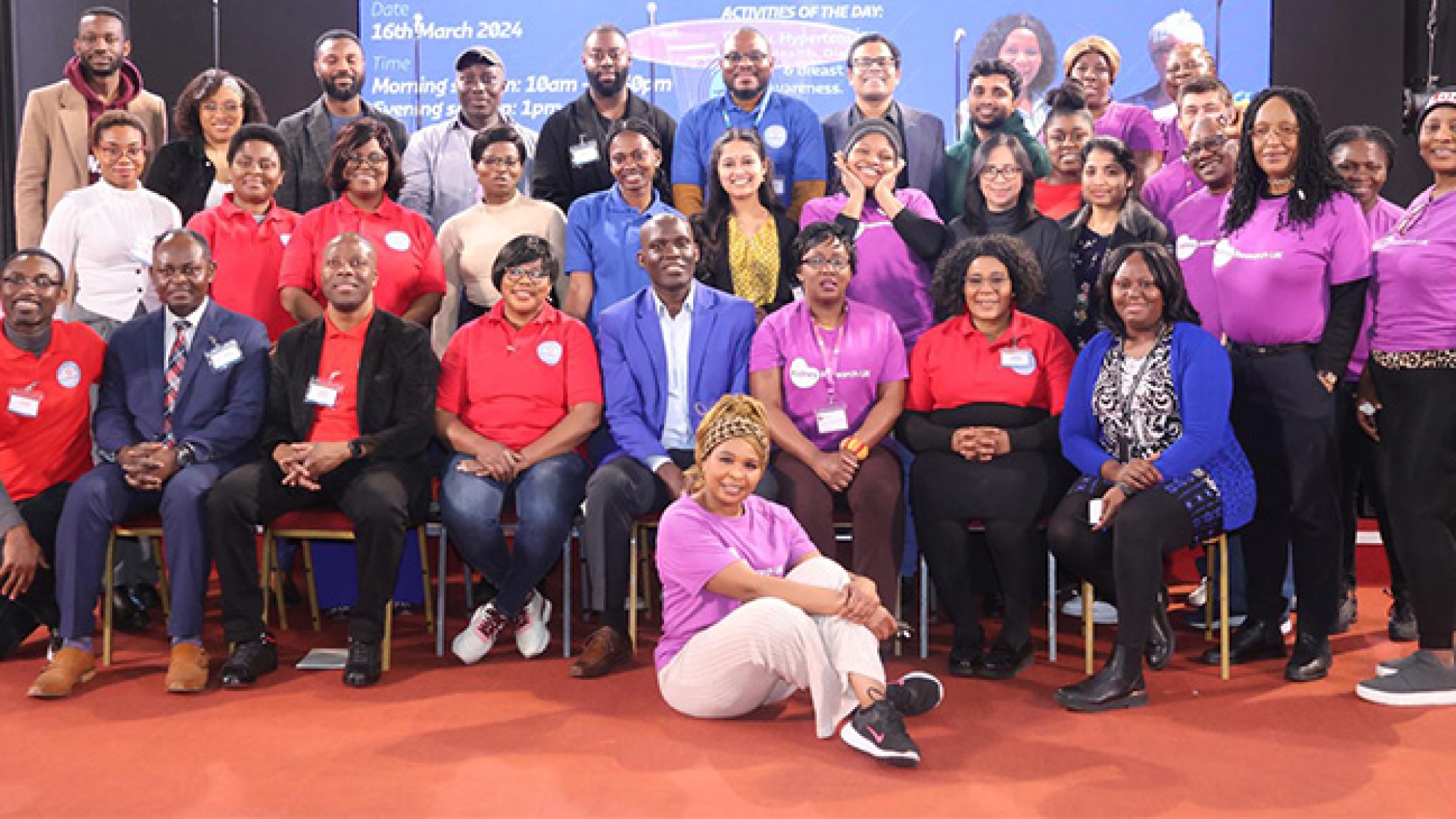Man was created by God in His own image and likeness to take full control of his world and transform it. (Genesis 1:27-28). Unfortunately, since the day God created humans up to today, hardly a day goes by without hearing disturbing news about men falling into all sorts of traps. Whether through immoral affairs with other women or undue manipulation by their mothers in their marriages, men sometimes find themselves powerless in the hands of their own children and pathetically helpless when their wives insist on something they desire. Consequently, many conclude that men are inherently vulnerable, especially to their female counterparts.
Others have also argued that it was God’s creation or design, asserting that He knows best why He made men that way. Are men truly vulnerable because of their nature? Can God excuse them for their failures? Would God lower the standard for them simply due to their perceived weaknesses? Is there anything God hasn’t addressed that makes men weak and open to various forms of manipulation? Is this fickle-mindedness of men at times a consequence of the fall? What about the redemptive and finished work of Christ on the cross for humanity? These and many other questions are what the article aims to discuss and deliberate upon, after which recommendations will be offered for men to remain who God created them to be. The first in the series of four write-ups focuses on men as fathers and certain vulnerabilities they face in relation to their children.
An occurrence in the household of a special covenant child around 1900 BCE still reverberates whenever the story is narrated in a family life context. The leader and head of this household was Isaac, who was approximately 137 years old at the time of the incident. It all began when Isaac, for some reason, felt he was nearing the end of his life and wanted to bless Esau, his older son before passing away. The prevailing custom dictated that the firstborn would receive a double portion of the inheritance, as they held the headship of the family. The beginning and conclusion of Isaac’s divine task of blessing Esau are discussed in the light of the father’s vulnerabilities at home.
- Controlling the Tongue: During Isaac’s time, the average life expectancy was just over one hundred, although it had drastically declined compared to the period before the flood. At 137 years of age, Isaac was likely experiencing some visible signs of old age. Therefore, he called Esau, his older son, and said, “I am an Old man and I don’t know the day of my death. Now then, get your equipment—your quiver and bow—and go out to the open country to hunt some wild game for me. Prepare me the kind of tasty food I like and bring it to me to eat, so that I may give you my blessing before I die.” (Gen 27:2-4). Prefacing any statement or directive with the words, “I don’t know the day of my death,” makes a person vulnerable to any audience. While it may not be an unusual comment among the elderly, it conveys a certain kind of fear, weakness, worry, concern, and uncertainty about the future.
Others may also make such statements to receive the necessary attention, especially from close relationships, to ensure specific tasks are carried out diligently and without further delays. Whatever the reason or motivation, death is not a person’s associate or ally to be called upon and referenced frequently to achieve any desired goal. Of course, if the Lord tarries, we will all bid farewell to this temporary life, but it must not be until our assignments from the Lord are completed. I have heard stories of some who frighten their loved ones with thoughts of dying if they face the slightest challenge in meeting a specific need. It works to a large extent due to the fear of death and its dread whenever it is invoked or implied.
Unfortunately for Isaac, Rebekah, his wife, overheard everything he told Esau regarding his feelings about death. One would have expected his beloved to draw closer, inquiring more about the cause of such an emotional outburst from her dear husband. Instead, what captured Rebekah’s attention wasn’t her husband’s passing, but how he intended to bless their firstborn at Jacob’s expense. Note that at this time, as the Bible puts it, “Isaac loved Esau, but Rebekah loved Jacob.” (Genesis 25:28). Whatever caused this bloody polarization and its fallout in Isaac’s household, is something every family must address head-on whenever it rears its ugly head. It was, therefore, not surprising that Mrs. Rebekah strangely focused on the political gains for her side, in this case, Jacob, instead of her potential widowhood should Isaac pass on.
At this juncture, let us not be too quick to cast aspersions on Rebekah as an insensitive and selfish wife. A few days before His suffering and subsequent death, Jesus told his disciples, “We are going up to Jerusalem, and the Son of Man will be delivered over to the chief priests and the teachers of the law. They will condemn him to death and will hand him over to the Gentiles to be mocked and flogged and crucified.” (Matthew 20:18-19a). Amazingly, the following statement, which came as a request from the mother of Zebedee’s sons, was for Jesus to grant her sons the two most prestigious seats in His Kingdom. His sorrowfulness of heart and the impending torture by the Gentiles were not much of a concern for her. Wow!
Please let’s not reduce this to a woman’s issue, because verse 22 shows that the ultimate beneficiaries, James and John, were accomplices in their mother’s maneuver. It is simply a selfish human phenomenon that can easily erupt when unchecked. The mere mention of one’s death day or impending suffering, therefore, doesn’t necessarily attract sympathy nor guarantee good behavior, at least from these two Biblical examples. What Isaac could have done to avoid the harm he faced at home was to bless Esau the moment he felt his life was fading. Prefacing his blessings with death only made him more vulnerable to all kinds of manipulation. Interestingly, Isaac lived for over 40 years longer afterward, reaching the age of 180. So, what could have been the issue? Rebekah, believing that Isaac could die at any moment from that day forward, decided to act quickly to deprive Esau of his blessings. She instructed Jacob, “Then take it to your father to eat, so that he may give you his blessing before he dies.” When Jacob hesitated, his mother said, “My son, let the curse fall on me. Just do what I say, go and get them for me.” (Genesis 27:10, 13).
The actual request or assignment Isaac sought to give Esau when he called him was to obtain some of the delicacy that Esau usually prepared for him. Couldn’t he have gotten the meat he wanted from Esau without creating the urgency and emotions of a pending death, which was never anywhere close anyway? Daddy, what do you usually tell your children when you need something from them? And how do you express your frustrations at home when things aren’t going as expected? Let us be mindful of our confessions as fathers at home and in every area of our lives. According to James 3:8, “No human being can tame the tongue. It is a restless evil, full of deadly poison.” Proverbs 18:21 also affirms that, “The tongue has the power of life and death, and those who love it will eat its fruit.”
Interestingly, the very trap Isaac fell into, craving his delicacy in old age, was the same one his firstborn stumbled upon in his youthful years when he came home from hunting to see Jacob’s stew. In his hunger, Esau said to Jacob, “Look, I am about to die.” “What good is the birthright to me?” (Genesis 25:32). How was Esau going to die of hunger when they were still living with their mother Rebekah at the time? Like his father Isaac, Esau invoked death at a very early age to manipulate his brother into giving him what he wanted. In the end, Esau sold his birthright to his younger brother for just a morsel of food, and the Bible referred to him as a profane person. (Hebrews 12: 16). The lust of the eyes and flesh, if unchecked, can exaggerate and magnify a simple challenge until a person is disgraced, shortchanged, and destroyed.
Even when death approaches according to God’s will, fathers are expected to make prophetic declarations and remain hopeful for everyone. When Joseph, the grandson of Isaac, was just about dying, he proclaimed to his audience, “I am about to die, but the Lord will surely visit you.” (Genesis 50:24).
- Managing Personal Cravings: “Prepare for me the kind of tasty food I like, so I eat and then bless you.” (Genesis 27:3). The food “I” like, from Isaac’s request above, reflects a certain fleshy craving. It’s not bad to have a list of delicacies; however, when uncontrolled, it can lead to a shipwreck of our Christian pilgrimage. What do you like most? What unsettles you with their mere sight and aroma? Let us be on the lookout, dear Fathers, for such trappings. They have disgraced many men and taken away their God-given assignments, cutting short their expectations and real potential. And why would Isaac charge or seem to price the act of blessing his own child, which was his parental duty anyway? That is precisely how far the lust of the flesh can push every believer to do the unthinkable if entertained.
When the devil sought to distract Jesus and wrestle His redemptive plan from Him through the same cravings, the Lord replied to him saying, “Man shall not live by bread alone.” (Matthew 4:4). Man, created in the image of God, have you placed any price tag on your duty of care as assigned by God for your household, organization, or the body of Christ? I hope not, as doing so would make you vulnerable and put you in harm’s way. Blessing people, including members of our households, must not be for sale, nor should it be offered only when visible signs of death are approaching. Although the last words spoken by humans before passing can carry significant meaning for many generations to come, the pronouncements of blessings on children and loved ones should not be delayed or reserved until a person’s final day on earth.
Can you imagine what might have happened if Isaac had blessed Esau much earlier than when he was 137 years old? Would he have been so vulnerable due to his visual impairment? Would Esau have also made some of the unpardonable mistakes of his youth? By his late teens, Esau had already sold his birthright to Jacob for a meal. Let’s also not forget that Esau, at the age of 40, married two Hittite women, which became a source of grief for his parents. (Genesis 26:34-35).
This discussion is never intended to blame Isaac for what we see as some avoidable lapses, but to glean lessons as contemporary fathers and to avoid jeopardizing our family lives. After all, 1 Corinthians 10:11-12 warns modern-day believers, saying, “These things happened to them as examples and were written down as warnings for us, on whom the culmination of the ages has come. So, if you think you are standing firm, be careful that you don’t fall!”
- Allowing the Holy Spirit’s Help as a Father: “Then Rebekah took the best clothes of Esau her older son, which she had in the house, and put them on her younger son Jacob. She also covered his hands and the smooth part of his neck with the goatskins.” (Genesis 27:15-16). The scheme orchestrated by Rebekah and staged by Jacob against Esau was indeed grand and well-rehearsed. Father Isaac, unsure and not at peace within his spirit, asked, “How did you find it so quickly, my son?” He continued, “Come near so I can touch you to know whether you are really my son Esau or not.” (Genesis 27:20-21). Isaac became so confused. Oh, he continued, “Are you really my son Esau? (Vs 24). Was Isaac not the Covenant Son the Lord promised Abraham? Was he not the one through whom all the nations of the earth would be blessed? He was! (Genesis 22:18). But how come he had become so vulnerable to members of his own household?
Only the supernatural can save a person from falling prey to such a trap, especially when the house manager in the person of Rebekah is overseeing it. Such are the trappings that some Fathers may find themselves ensnared in within their households, as certain family members begin to rebel. The New Testament Church, however, has been equipped with a spiritual scanner that can examine the innermost being of all who don the garments of “Esaus” in our time to rob them of their blessings. In Acts 5, Ananias and Sapphira attempted to deceive Apostle Peter, but for the power and reliance on the Holy Spirit. Peter asked Ananias, “What made you think of doing such a thing? You have not lied just to human beings but to God.” (Acts 5:4). This was the question Isaac should have asked Jacob if he had taken a moment to depend on the Holy Spirit when he became confused. Jacob was dressed in Esau’s best clothes according to Genesis 27:15. Only the members of a household would know the best clothes of each family member. Parents must, therefore, understand that certain inevitable vulnerabilities can only be managed by God on our behalf.
When Esau came and called his father to sit up and eat the food he had requested, his father, Isaac, said, “Who are you?” This illustrates the depth of human vulnerability when fathers fail to depend on the guidance of the Holy Spirit. It doesn’t matter whether a person’s credentials, titles, or past victories are impressive (Genesis 27:32-33). Isaac then trembled violently, realizing that someone had probably deceived him. If fathers or men don’t depend entirely on the Holy Spirit to maintain their homes, they will end up trembling and shaking at a time when their health isn’t even the best. On this Father’s Day, I would like to encourage all parents, especially fathers, to rely completely on the guidance of the Holy Spirit and not just on their intellect and experiences.
- Managing Health Challenges Associated with Old Age: “When Isaac’s eyes were so weak that he could no longer see.” (Gen 27:1). Aging brings many health challenges, some of which are unavoidable. Isaac’s eyesight failed him at the age of 137. During the almost 43 years he had left to live, he had to cope with that visual impairment. Unfortunately, some of these health issues can leave people vulnerable and helpless. The Lord Jesus confirmed this phenomenon of aging when he told Peter, “Very truly I tell you, when you were younger you dressed yourself and went where you wanted; but when you are old you will stretch out your hands, and someone else will dress you and lead you where you do not want to go.” (John 21:18).
We can, however, attempt to manage and soothe the pains associated with aging by living a responsible, healthy lifestyle complemented with regular medical screenings. People of God must, however, not underestimate the importance of constantly praying, asking God to show mercy and intervene in their health challenges. I have heard that some family members have succeeded in pressuring their parents, who are suffering from various ailments, to change their wills for their benefit. Psalm 71:9 reads, “Do not cast me away when I am old; do not forsake me when my strength is gone.” I would like to take this opportunity to wish all our aged fathers who are battling various health challenges a Happy Father’s Day, pleading with God for divine and miraculous visitation in their lives. May Jehovah Rapha free you from all ailments in Jesus’ name.
God made man a complete being without leaving anything unfinished. The inherent weaknesses associated with the fall have also been addressed by the finished work of Christ on the cross. What fathers need to do to be the men and leaders God designed them to be is to guard against careless confessions, rely wholly on the Holy Spirit’s guidance, and resist the temptations of the flesh and eyes. Fathers must also undergo regular medical check-ups and adopt healthy living habits not only as they age, but also from their younger years. The deception of Isaac and the misery that tore his home apart can be directly attributed to him. However, Rebekah, his wife, was the architect, with Jacob providing strong support. We will have no excuse as fathers to let our homes deteriorate due to the craftiness of other household members. The Holy Spirit, whom the Bible calls the Spirit of Truth and who is also God, is readily available to assist in any complex situation at home. Let us rise as fathers as we celebrate Father’s Day and make God proud for creating us in His own image. Stay blessed!
Written by Apostle James Orhin Agyin














